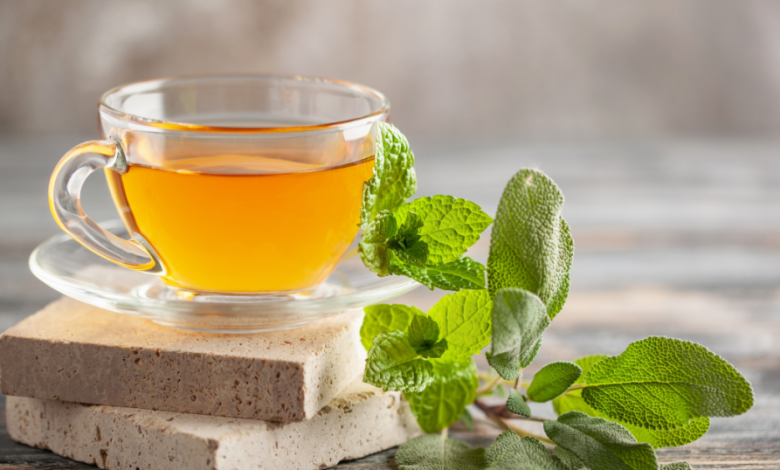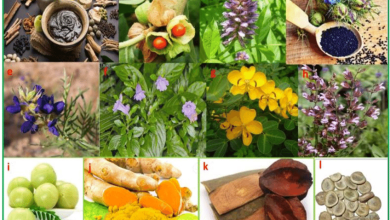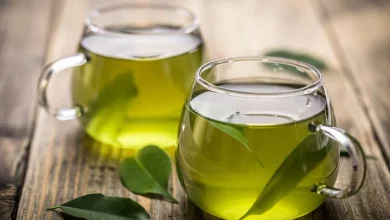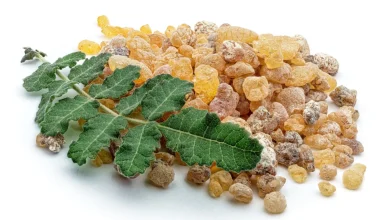The Surprising Tea That Boosts Brainpower and Fights Ageing

When we think of drinks that energize us and keep us sharp, coffee often comes to mind. But what if there’s another option that not only stimulates the brain but also slows down ageing? Enter green tea—a centuries-old beverage with modern scientific backing that shows remarkable effects on brain health, longevity, and overall vitality.
Green tea is not just a comforting warm drink; it’s a powerhouse of antioxidants, amino acids, and compounds that work synergistically to keep your mind sharp and your body youthful. In fact, cultures like Japan and China have long celebrated green tea for its role in promoting longevity and reducing the risk of age-related diseases.
Why green tea is the surprising tea that boosts brainpower and fights ageing, backed by science and practical lifestyle tips.
1. The Ancient Origins of Green Tea
Green tea originates from the leaves of the Camellia sinensis plant, the same plant used to produce black and oolong teas. The difference lies in how the leaves are processed:
- Green tea leaves are minimally oxidized, preserving their natural antioxidants and nutrients.
- Black tea leaves are fully oxidized, giving them a stronger flavor but reducing certain delicate compounds.
Historically, green tea was consumed in China as early as 2737 BC. By the Tang Dynasty (618–907 AD), it became a staple beverage for scholars and monks, who prized it for enhancing focus during meditation. The Japanese later refined the tradition with practices like the Zen-inspired tea ceremony, emphasizing mindfulness and health.
This ancient reverence wasn’t unfounded—modern science now confirms what sages knew for centuries: green tea is more than a drink; it’s medicine in a cup.
2. The Secret Compounds Behind Green Tea’s Power
So, what makes green tea such a brain-boosting, anti-ageing powerhouse? The answer lies in its unique blend of bioactive compounds.
2.1. Epigallocatechin Gallate (EGCG)
- The most abundant catechin in green tea.
- A potent antioxidant that combats free radicals, which are unstable molecules that damage cells and accelerate ageing.
- Known for its anti-inflammatory and neuroprotective properties.
2.2. L-Theanine
- An amino acid found almost exclusively in tea plants.
- Promotes relaxation without drowsiness.
- Enhances alpha brainwave activity, associated with calm focus and creativity.
- Works synergistically with caffeine to improve concentration without jitters.
2.3. Caffeine
- Present in smaller amounts compared to coffee.
- Provides mild stimulation, increasing alertness and memory retention.
- Balanced by L-theanine, reducing the risk of anxiety and crashes.
2.4. Polyphenols & Flavonoids
- Protect cells from oxidative stress.
- Help reduce inflammation, a key driver of ageing and chronic disease.
Together, these compounds create a unique “neuroprotective cocktail” that shields the brain and keeps ageing at bay.
3. How Green Tea Boosts Brainpower
One of the most exciting aspects of green tea is its impact on brain health. Let’s break down the evidence.
3.1. Enhancing Memory and Focus
Studies have shown that the combination of caffeine and L-theanine improves working memory, focus, and alertness. Unlike coffee, which may cause spikes and crashes, green tea delivers a steady, balanced mental boost.
3.2. Protecting Against Cognitive Decline
Neurodegenerative diseases like Alzheimer’s and Parkinson’s are linked to oxidative stress and abnormal protein accumulation in the brain. EGCG helps by:
- Reducing amyloid plaque buildup (a hallmark of Alzheimer’s).
- Protecting dopamine-producing neurons (critical in Parkinson’s disease).
- Enhancing synaptic plasticity, which supports learning and memory.
3.3. Boosting Mood and Mental Well-being
Green tea drinkers often report feeling calmer yet more alert. This isn’t placebo—L-theanine increases GABA, dopamine, and serotonin levels, neurotransmitters that regulate mood and reduce anxiety.
A 2017 review in Phytomedicine found that regular green tea consumption significantly lowers stress and promotes a sense of well-being.
4. The Anti-Ageing Power of Green Tea
While green tea sharpens the mind, it also slows down the physical signs of ageing.
4.1. Antioxidant Protection
Free radicals are a major contributor to wrinkles, sagging skin, and age-related disease. The antioxidants in green tea neutralize these harmful molecules, protecting cells and DNA from damage.
4.2. Skin Health and Anti-Wrinkle Benefits
Topical and oral green tea intake:
- Reduces UV-induced skin damage.
- Improves skin elasticity and hydration.
- Minimizes wrinkles and pigmentation.
Many skincare brands now use green tea extract in creams and serums for its anti-ageing properties.
4.3. Supporting Longevity
Cultures that drink green tea daily, such as in Japan’s Okinawa region, have some of the highest life expectancies in the world. Regular consumption has been linked to reduced risk of:
- Heart disease
- Type 2 diabetes
- Stroke
- Certain cancers
In essence, green tea helps extend both lifespan (living longer) and healthspan (living healthier).
5. Scientific Evidence Supporting Green Tea
5.1. Brain Health Studies
- A 2014 study in Psychopharmacology found that green tea extract improved working memory performance in healthy adults.
- Another study in The American Journal of Clinical Nutrition showed that people who drank 2–3 cups of green tea daily had a lower risk of cognitive impairment as they aged.
5.2. Anti-Ageing Studies
- Research in Archives of Biochemistry and Biophysics demonstrated EGCG’s role in reducing oxidative stress and extending lifespan in animal models.
- A large Japanese cohort study involving over 40,000 participants found that green tea drinkers had a significantly reduced risk of death from all causes, especially cardiovascular disease.
6. How to Incorporate Green Tea into Your Lifestyle
To harness the brain-boosting and anti-ageing benefits of green tea, here are some practical tips:
6.1. Choose Quality Tea
- Opt for loose-leaf green tea or matcha for higher antioxidant levels.
- Avoid overly processed or instant teas that may lack potency.
6.2. Brewing Tips
- Use water at 70–80°C (not boiling) to preserve delicate compounds.
- Steep for 2–3 minutes. Over-steeping can make the tea bitter.
6.3. How Much to Drink
- Aim for 2–4 cups per day to maximize benefits.
- If sensitive to caffeine, consume earlier in the day or choose decaffeinated varieties.
6.4. Try Variations
- Matcha: A powdered form of green tea with even higher EGCG levels.
- Sencha: A common Japanese green tea, mild and refreshing.
- Gyokuro: A premium shade-grown tea with a sweeter flavor and high L-theanine.
7. Beyond Drinking: Other Uses of Green Tea
Green tea’s benefits aren’t limited to sipping it hot. You can integrate it in multiple ways:
- Smoothies: Add matcha powder for an antioxidant boost.
- Cooking: Use green tea in soups, noodles, or even desserts.
- Supplements: Green tea extract capsules are available for those who don’t enjoy the taste.
- Skincare: Look for green tea–infused creams, masks, and serums.
8. Potential Side Effects and Considerations
While green tea is generally safe, moderation is key.
- Caffeine Sensitivity: Some people may experience insomnia, jitteriness, or rapid heartbeat.
- Iron Absorption: Green tea may reduce iron absorption from plant-based foods. Drink between meals if this is a concern.
- High Doses: Excessive supplementation (especially extracts) can strain the liver. Stick to recommended amounts.
9. The Cultural Connection: Tea and Longevity Rituals
Part of green tea’s power may also lie in the ritual of drinking it. Taking a mindful break with a warm cup encourages relaxation, lowers stress hormones, and fosters social connection.
For example:
- In Japan, the tea ceremony is a meditative practice that cultivates peace and presence.
- In China, tea drinking has been associated with hospitality, wisdom, and balance.
Thus, green tea nourishes not only the body but also the spirit.
10. The Future of Green Tea in Medicine
Researchers continue to explore green tea’s potential in modern medicine. Current areas of interest include:
- Cancer prevention and therapy: EGCG shows promise in slowing tumor growth.
- Neurodegenerative disease treatments: Developing drugs inspired by green tea compounds.
- Metabolic health: Supporting weight loss and diabetes management.
As science evolves, green tea may become a central player in functional foods and therapeutic interventions.
Final Thoughts
In a world obsessed with quick fixes and synthetic supplements, green tea stands out as a simple, natural, and time-tested solution. It enhances brainpower, slows ageing, supports longevity, and nurtures the body from the inside out.
The secret isn’t just in its chemistry but in its daily practice—sipping green tea connects us to centuries of tradition and a future of healthier living.
So the next time you reach for a cup of coffee or an energy drink, consider making the switch. Your brain, your skin, and your future self will thank you.




